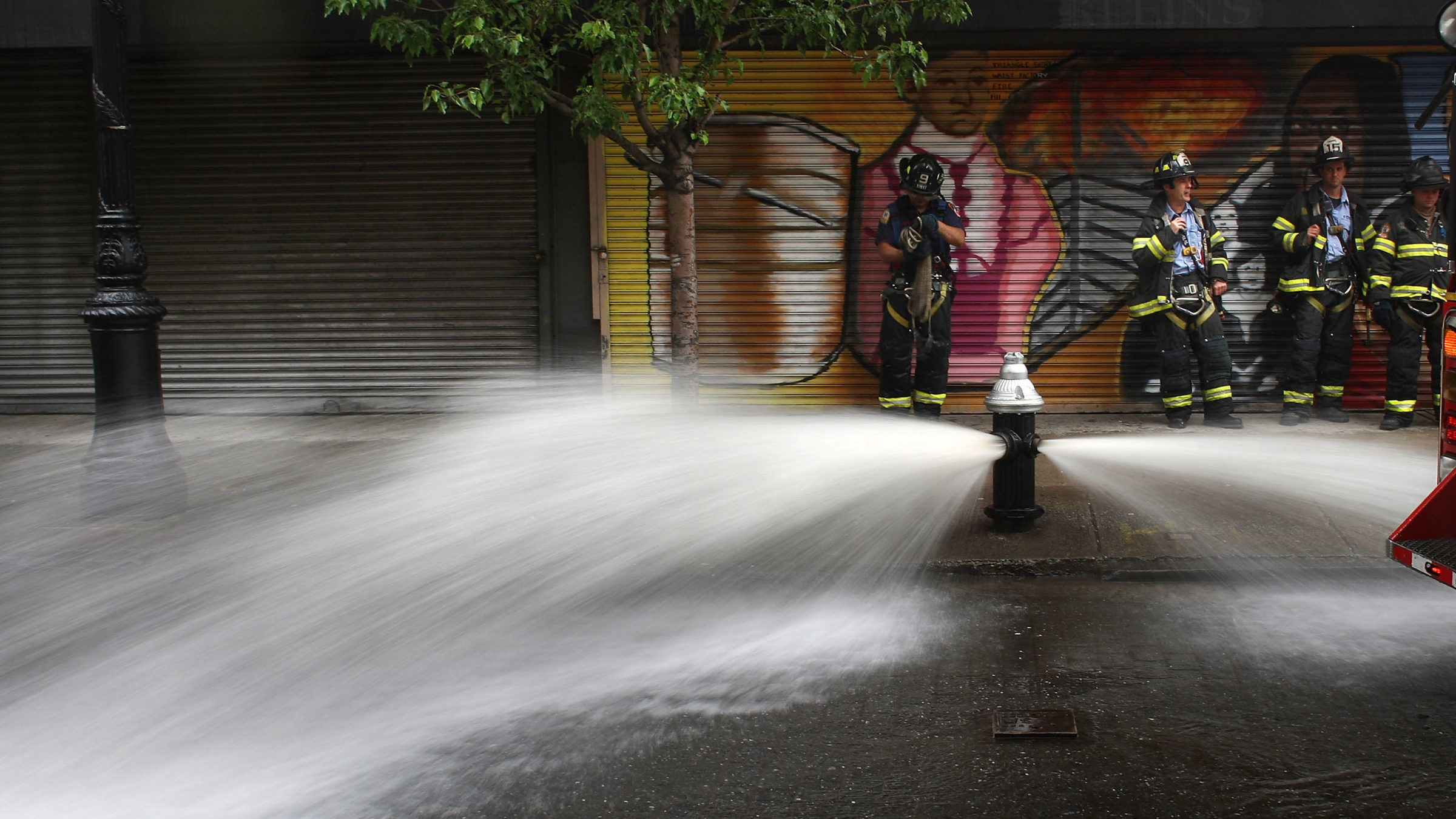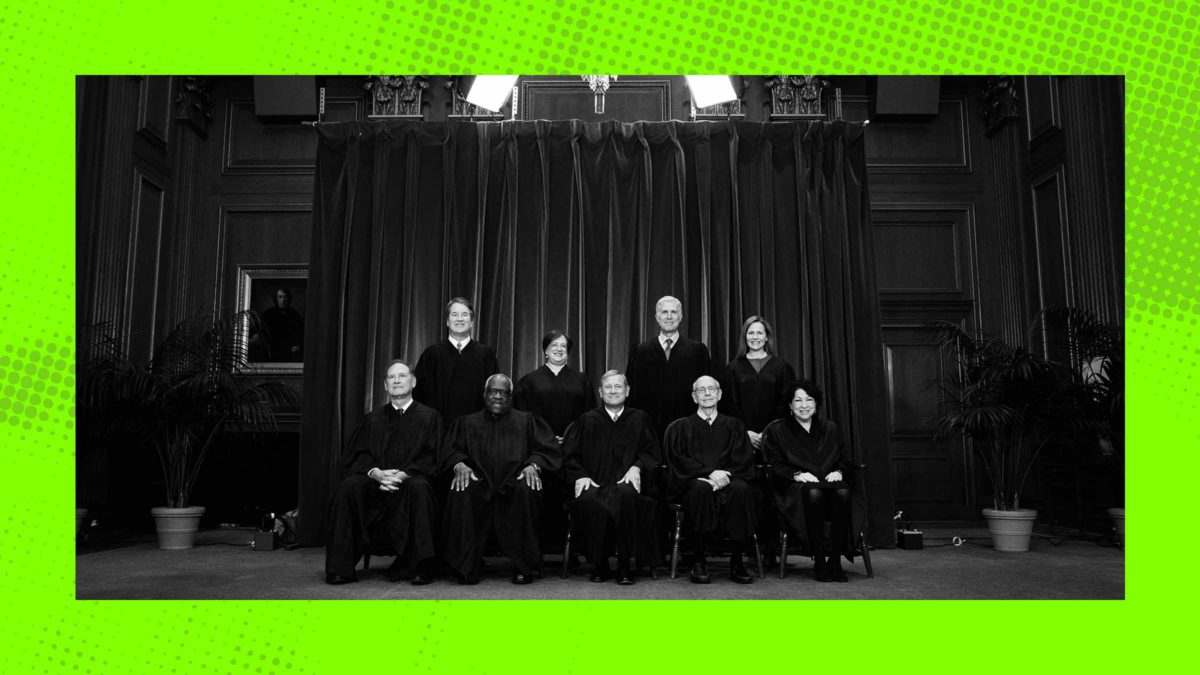The digital ink had not yet dried on Monday’s bombshell story that the Supreme Court has the votes to overrule Roe v. Wade when America’s most online lawyers began weighing in on The Real Crisis: the shocking, shameful leak from within the hallowed chambers of the nation’s highest and fanciest court.
In Bloomberg, Harvard Law School professor and noted Amy Coney Barrett superfan Noah Feldman mourned the leak as “a terrible blow to the court’s morale and process and legitimacy.” Feldman graciously acknowledged that the end of Roe will be a “constitutional tragedy.” Yet he warned that the “collapse of the court’s orderly process is calamitous in its own right,” since it will have “a harder time doing the rest of its business.” Heaven forbid the conservative legal movement’s ongoing project to roll back five generations’ worth of progress run into a few pesky logistical snags along the way!
Historically, Supreme Court leaks have been pretty rare, and those that have occurred were certainly not on the scale of an entire 67-page draft majority opinion in the most important case in decades. This is a norm that stems from the Court’s intertwined traditions of genteel collegiality and performative secrecy, which track the legal profession’s conception of itself as special and different than everyone else. Leaking to the press is seen as beneath the dignity of the institution—a stunt reserved for the political types on Capitol Hill, not juris doctor recipients bound by a solemn oath to uphold the Rule of Law. Clerks have especially lucrative incentives to remain silent. As law firm bonuses for former Supreme Court clerks approach a half-million dollars, it literally pays to keep their heads down and Instagrams private.
Other lawyers and journalists—particularly those with vested interests in the Court’s institutional legitimacy, its decision in Dobbs, or both—mashed out similarly sweaty condemnations of this tawdry breach of quasi-omerta. Georgetown Law’s Ilya Shapiro, last seen celebrating his new job by doing some racist tweets about Ketanji Brown Jackson, called the leak an “inexcusable” threat to the Court’s work. Law professor Jonathan Turley, last seen desperately auditioning for an eleventh-hour Trump judicial appointment that never came, framed it as a violation of the Court’s “most fundamental obligations and traditions.”
CNN legal pundit Jeffrey Toobin, last seen doing things on a Zoom call, bemoaned it as a “shattering experience for the justices.” He wrapped in apocalyptic terms: “I really don’t know how the institution is going to recover.”
Perhaps no one rode harder for the Court’s suddenly-wounded dignity than the official Twitter handle of SCOTUSblog, which is both (1) the internet’s most comprehensive source of Supreme Court news and (2) published by Tom Goldstein, a high-profile Supreme Court litigator with a vested interest in remaining in the justices’ good graces. “It’s impossible to overstate the earthquake this will cause inside the Court, in terms of the destruction of trust among the Justices and staff,” the account posted. “This leak is the gravest, most unimaginable sin.”
This elevation of process over substance is as wrong as it is self-serving. The Court is not losing public trust or facing an existential crisis because of a leak. The Court is leaking because it is losing public trust and facing an existential crisis.
Its approval rating has dropped precipitously of late because most Americans see what most fancy lawyers cannot: that this Court is a threat to people, places, and things about which they care deeply. As Barry Friedman, Dahlia Lithwick, and Steve Vladeck put it in The Washington Post, this leak is only as “unprecedented” as what the Court is actually doing: overturning itself to take rights away, stuffing into the garbage well-established law and a principle around which people have organized their lives for no reason other than the fact that they finally have the votes to do it. The surprise publication of a draft opinion that would spike 50 years of protections for the right to choose is not a disease the Court’s defenders can cure. It is a symptom of the Court’s deep-seated, incurable rot.
This is not to suggest that its defenders won’t try. In a statement on Tuesday, Chief Justice John Roberts confirmed the draft’s authenticity and promised a full investigation into this “betrayal” of the Court’s confidences. The conservative law professor Josh Blackman has already called for federal prosecutions of anyone implicated in what he poetically deemed “Leakgate,” and for Roberts’s prompt resignation, if Roberts is unable to resolve the situation to Blackman’s satisfaction. Leaking from the Court has always been, at the very least, perceived as risky. The heightened vigilance that will inevitably result from this episode means leaking won’t get easier anytime soon.
This is not to suggest that People Who Know Things shouldn’t do it anyway. Absent a few untimely departures from this mortal realm and/or the Democratic Party’s sudden manifestation of a backbone, this six-justice majority of unremovable life-tenured ideologues will function as a reactionary superlegislature for the next several decades. The very least anyone at the Court who finds this state of affairs suboptimal can do is print out draft opinions on loose-leaf paper and scatter them in Lafayette Park like Super Bowl confetti.

A broken fire hydrant in New York City in 2008, or the Supreme Court of the United States in 2022? You be the judge! (Photo by Spencer Platt/Getty Images)
A nakedly partisan Supreme Court deserves to be treated like any other nakedly partisan branch of government. I want a broken fire hydrant of unhinged majorities, unsparing dissents, and snippy interoffice memos asking Clarence Thomas to stop spamming links to classic Rush Limbaugh episodes. (Some of these leaks should be to me, a person with open DMs who is available on Signal and can guarantee your anonymity.) The geyser of low-resolution PDFs hastily scrubbed of metadata should be visible from space. A Court on the verge of overturning Roe and remaking the country in the graven image of Ronald Reagan is a bona fide emergency, and should make the Trump White House’s Scaramucci Era look like a papal conclave.
When I first read Politico’s report, I assumed the culprit was a disgruntled liberal clerk pulling a jurisprudential fire alarm. Since then, smart people have posited that a conservative clerk or justice, perhaps hoping to keep a wavering conservative justice in line, is a likelier explanation. But it is not especially important to me which theory about this particular leak in this particular case is correct, because more transparency at a self-indulgent institution that never deigns to show its work is a good thing. At the very least, it is hard to imagine how being forced to operate at a transparency level of greater than zero would make the Court any worse.
In a perfect world, maybe the future of whatever remains of representative democracy would not depend on the highest court’s reluctant transformation into a gigantic marble sieve. But this is not a perfect world; it is one in which Brett Kavanaugh’s honking ruminations about the scope of civil rights during oral argument reveal a great deal about whether those civil rights will exist in six months. This exceedingly grim status quo, in my view, is worth risking one’s invitation to the cocktail parties and inclusion on the alumni listservs. If business as usual amounts to letting these people do their dirty work in the dark, let’s get some fucking floodlights out.
For too long, the Court has relied for its legitimacy on the myth of the nonpartisan judiciary, using it as a shield from accountability for the justices’ political choices. The Court’s legitimacy should instead hinge on whether the justices are acting legitimately. If a half-dozen extremists are just going to take a blowtorch to anything and everything they don’t like, no one in their orbit should be obligated to abide by their sacred norms any longer.

